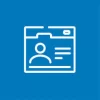On Thursday, the Swiss National Bank (SNB) raised its interest rates from -0.75 percent to -0.25 percent. “This is the first time that the SNB’s interest rate has gone up in 15 years – so it is a historical event,” comments moneyland.ch CEO Benjamin Manz.
While signs pointed towards an eventual increase, the SNB’s decision comes surprisingly earlier than expected, believes moneyland.ch analyst Felix Oeschger. The change is also bigger than what most market observers expected it to be.
The raising of the SNB’s key interest rate enables increases in the interest rates of many different financial products, including medium-term notes and mortgages. But the change has already happened for these products, as their interest rates have climbed since the beginning of the year. Savings accounts and private accounts have remained an exception, as Oeschger explains: “As of yet, the interest rates of bank account have not changed. But if the SNB sticks to its current path, we can expect to see climbs in interest rates across savings and checking accounts as well.”
Fewer negative interest rates
moneyland.ch asked Swiss banks how they are responding to the SNB’s decision. Many banks have said that they will be reducing their negative interest rates. For example, UBS and Credit Suisse say that they will adjust their negative interest rates for private and business customers upwards by half a percentage point. Raiffeisen Switzerland has recommended that all Swiss Raiffeisen banks move possible negative interest rates to -0.25 instead of -0.75 percent per annum.
Although the SNB’s new interest rate will apply from June 17, many banks will only adjust their interest rates for private customers on July 1, 2022. But there are exceptions: The Zürcher Kantonalbank will implement its new interest rates as soon as the SNB’s key rate changes. Postfinance’s interest rates for all its private and business customers should be adjusted by July 1, 2022, at the latest, starting with large and institutional customers.
Additional rate hikes expected
Replies from banks show that although the charges are not yet history, affected customers will have to pay much less negative interest in the future. But banks still have to pay the national bank some negative interest on the portions of their call deposits which exceed the threshold for exempted assets. “That means banks can still justify charging negative interest. If the SNB continues to raise its key interest rate, that argument will no longer be relevant,” says Oeschger.
It is fairly safe to assume that this will not be the last time that the SNB raises its key rate. Thomas Jordan, president of the Swiss National Bank, indicated that more adjustments will follow when he announced the current rate increase. Oeschger also sees this as likely “because whether the current change in interest rates alone will be sufficient to keep inflation in Switzerland in check is questionable.”
More on this topic:
Compare Swiss savings accounts now
Compare Swiss private accounts now

 Deal of the Day
Deal of the Day 










